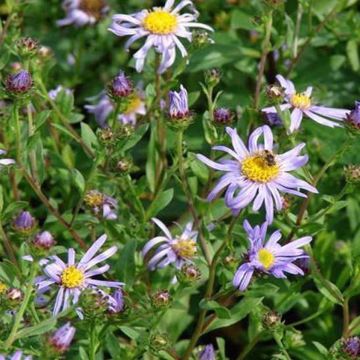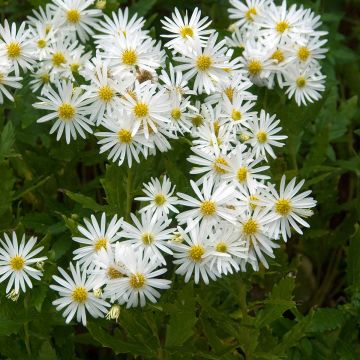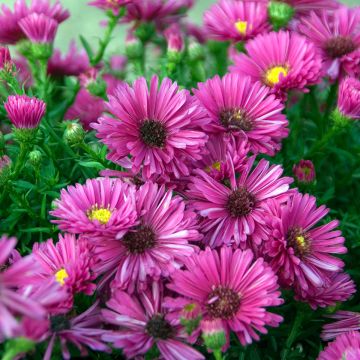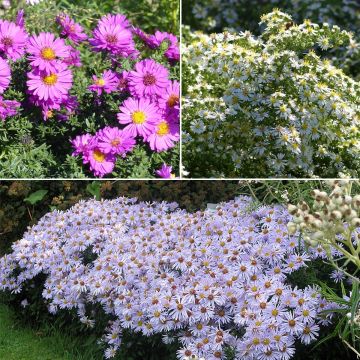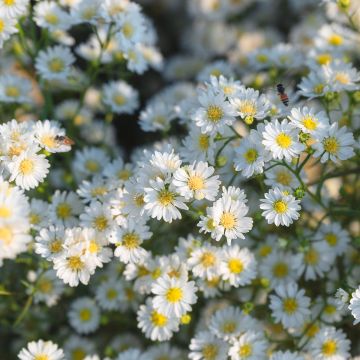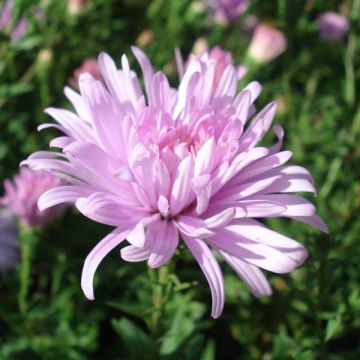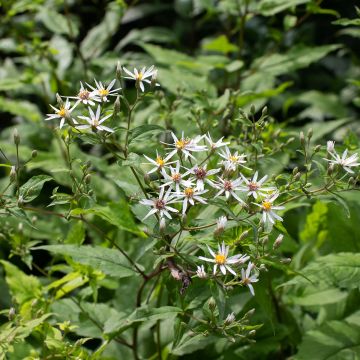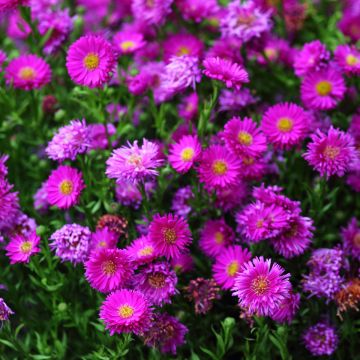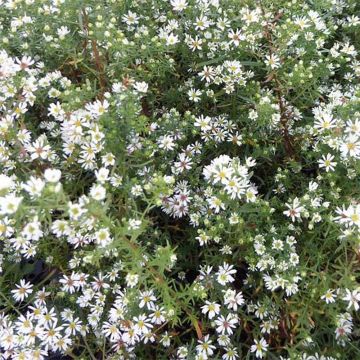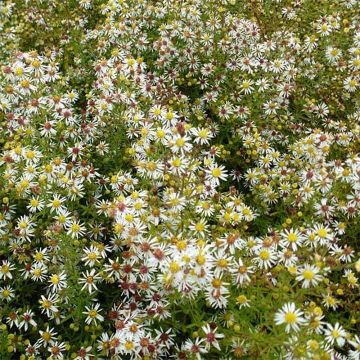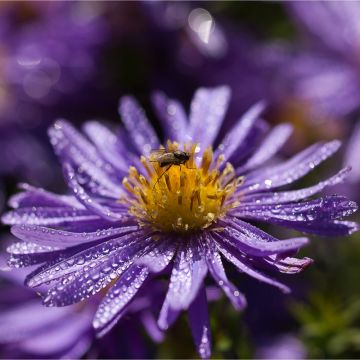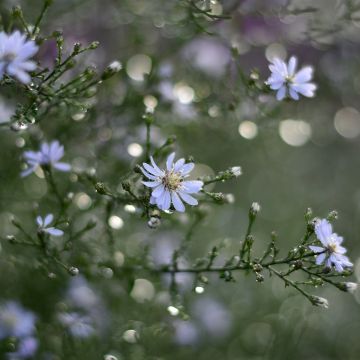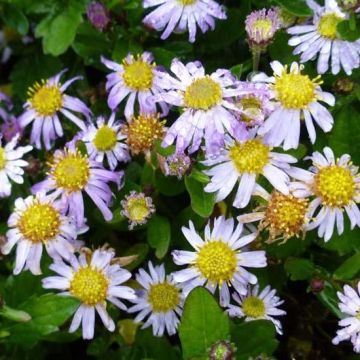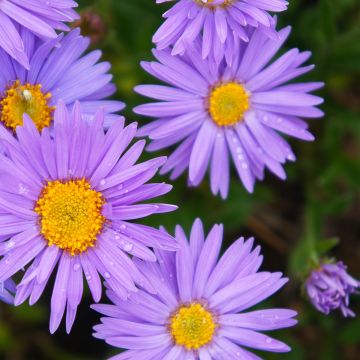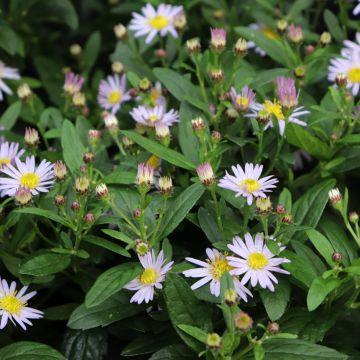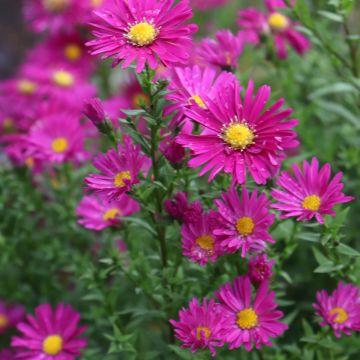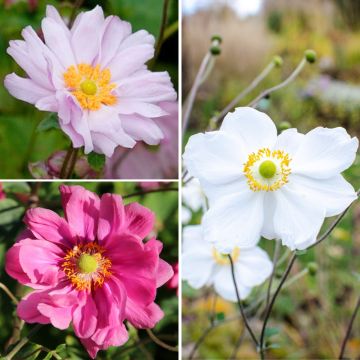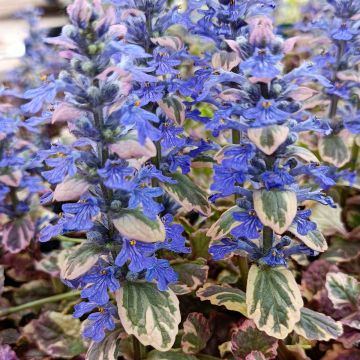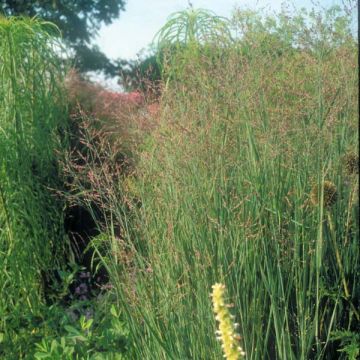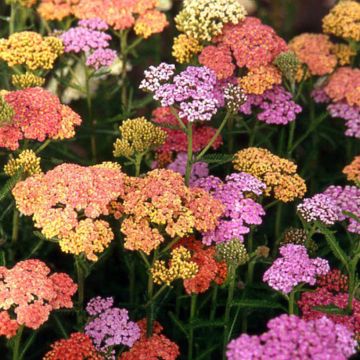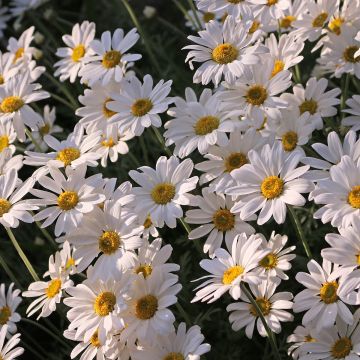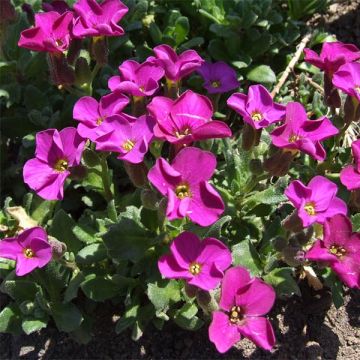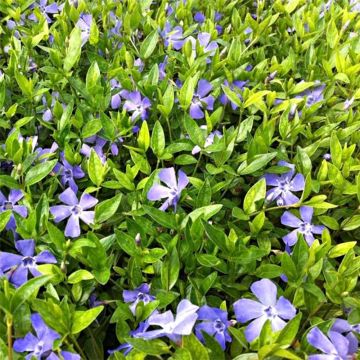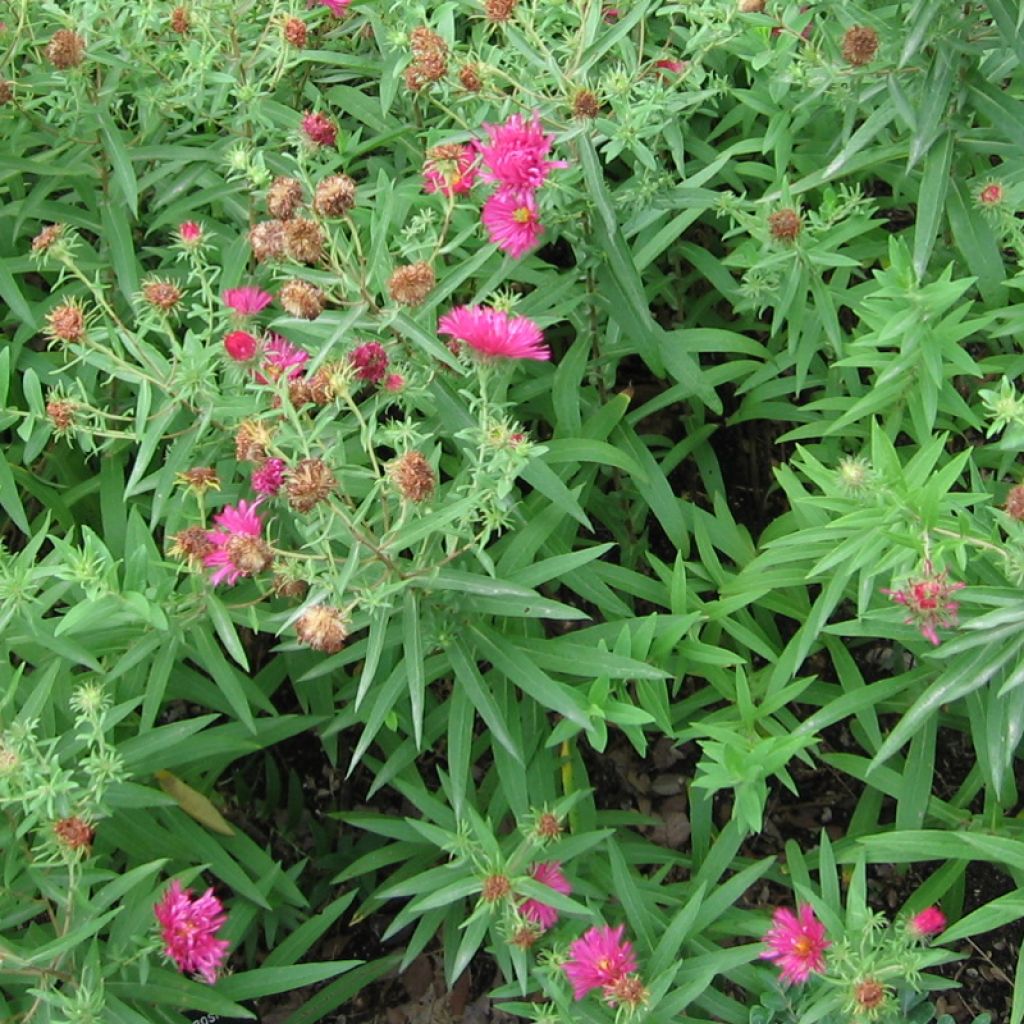

Aster novae-angliae Rosanna
Aster novae-angliae Rosanna
Aster novae-angliae Rosanna
New England Aster, Michaelmas Daisy
Special offer!
Receive a €20 voucher for any order over €90 (excluding delivery costs, credit notes, and plastic-free options)!
1- Add your favorite plants to your cart.
2- Once you have reached €90, confirm your order (you can even choose the delivery date!).
3- As soon as your order is shipped, you will receive an email containing your voucher code, valid for 3 months (90 days).
Your voucher is unique and can only be used once, for any order with a minimum value of €20, excluding delivery costs.
Can be combined with other current offers, non-divisible and non-refundable.
Why not try an alternative variety in stock?
View all →This plant carries a 12 months recovery warranty
More information
We guarantee the quality of our plants for a full growing cycle, and will replace at our expense any plant that fails to recover under normal climatic and planting conditions.
Would this plant suit my garden?
Set up your Plantfit profile →
Description
Aster novae-angliae Rosanna is a very tall perennial plant that thrives in moist soil, making it a majestic addition to any flowerbed. Its flowering season begins earlier than other New England asters. This upright variety is almost hidden beneath its countless deep pink-mauve flowers, which complement the colours of autumn. Aster novae-angliae is quite resistant to powdery mildew and thrives in humid climates and heavy, fertile clay soils, as well as wheat fields.
The family of asters, known as Asteraceae, is mainly characterised by the shape of its flower heads, which are called capitulum. Aster novae-angliae is native to the eastern and central regions of North America. This particular variety is particularly imposing, with its flowering stems often reaching heights of 1.40m (5ft) to 1.50m (5ft). It is very hardy, tolerating temperatures as low as -30°C (1°F), and blooms abundantly, although it often requires staking. 'Rosanna' transforms into clusters of small daisies of a rare pink-mauve colour, surrounding a small yellow centre that turns brown-pink. Flowering will be more generous if the plant doesn't dry out in summer. It prefers sun but will benefit from having its base protected by a thick mulch. The stems, woody at the base, bear narrow, velvety, dark green leaves.
The 'Rosanna' aster is perfect for adding late-season blooms to your garden, but you can also plant it in large pots to brighten up the surroundings of your home. In the ground, create a rustic feel around your asters with other tall perennials (Gauras, Rudbeckia, perennial sunflowers, inulas), small bushes (landscape roses, Perovskia, Caryopteris, small Hydrangea macrophylla), plus evergreens like cotoneaster, Lonicera nitida, and creeping junipers to provide some greenery alongside the asters until the end of their flowering season.
Report an error about the product description
Aster novae-angliae Rosanna in pictures
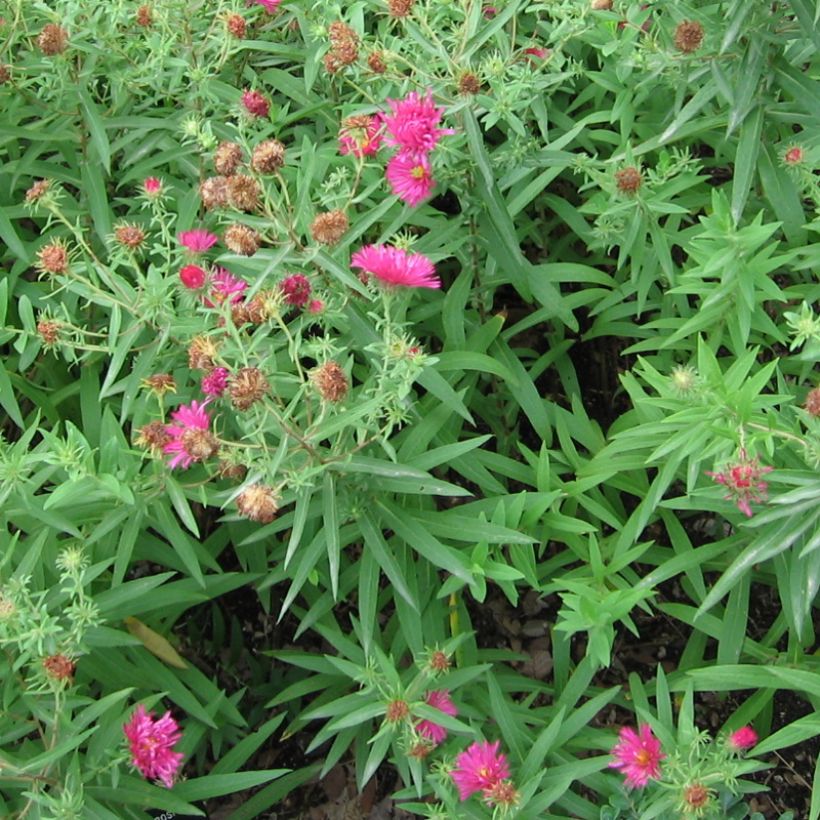

Flowering
Foliage
Plant habit
Botanical data
Aster
novae-angliae
Rosanna
Asteraceae
New England Aster, Michaelmas Daisy
Cultivar or hybrid
Other Asters
View all →Planting and care
Plant the 'Rosanna' New England Aster in autumn or spring in ordinary, rich and well-worked soil. It can tolerate temperatures as low as -30°C (1°F). It prefers full sun but can tolerate partial shade, where it will have a slightly looser habit. Avoid strong winds that would flatten the clumps; it may be helpful to stake the stems in some cases. Avoid moving once established as it dislikes change. In borders, maintain a spacing of at least 50 cm (20in) around the plants. This aster does not tolerate competition from other roots. Mulch the soil from June onwards and water in case of heatwaves. New England Asters are not susceptible to powdery mildew. Divide the clumps every three years to keep them flowering abundantly. Do not replant the divisions in the same spot, and give them a rich soil.
Planting period
Intended location
Care
This item has not been reviewed yet - be the first to leave a review about it.
Similar products
Haven't found what you were looking for?
Hardiness is the lowest winter temperature a plant can endure without suffering serious damage or even dying. However, hardiness is affected by location (a sheltered area, such as a patio), protection (winter cover) and soil type (hardiness is improved by well-drained soil).

Photo Sharing Terms & Conditions
In order to encourage gardeners to interact and share their experiences, Promesse de fleurs offers various media enabling content to be uploaded onto its Site - in particular via the ‘Photo sharing’ module.
The User agrees to refrain from:
- Posting any content that is illegal, prejudicial, insulting, racist, inciteful to hatred, revisionist, contrary to public decency, that infringes on privacy or on the privacy rights of third parties, in particular the publicity rights of persons and goods, intellectual property rights, or the right to privacy.
- Submitting content on behalf of a third party;
- Impersonate the identity of a third party and/or publish any personal information about a third party;
In general, the User undertakes to refrain from any unethical behaviour.
All Content (in particular text, comments, files, images, photos, videos, creative works, etc.), which may be subject to property or intellectual property rights, image or other private rights, shall remain the property of the User, subject to the limited rights granted by the terms of the licence granted by Promesse de fleurs as stated below. Users are at liberty to publish or not to publish such Content on the Site, notably via the ‘Photo Sharing’ facility, and accept that this Content shall be made public and freely accessible, notably on the Internet.
Users further acknowledge, undertake to have ,and guarantee that they hold all necessary rights and permissions to publish such material on the Site, in particular with regard to the legislation in force pertaining to any privacy, property, intellectual property, image, or contractual rights, or rights of any other nature. By publishing such Content on the Site, Users acknowledge accepting full liability as publishers of the Content within the meaning of the law, and grant Promesse de fleurs, free of charge, an inclusive, worldwide licence for the said Content for the entire duration of its publication, including all reproduction, representation, up/downloading, displaying, performing, transmission, and storage rights.
Users also grant permission for their name to be linked to the Content and accept that this link may not always be made available.
By engaging in posting material, Users consent to their Content becoming automatically accessible on the Internet, in particular on other sites and/or blogs and/or web pages of the Promesse de fleurs site, including in particular social pages and the Promesse de fleurs catalogue.
Users may secure the removal of entrusted content free of charge by issuing a simple request via our contact form.
The flowering period indicated on our website applies to countries and regions located in USDA zone 8 (France, the United Kingdom, Ireland, the Netherlands, etc.)
It will vary according to where you live:
- In zones 9 to 10 (Italy, Spain, Greece, etc.), flowering will occur about 2 to 4 weeks earlier.
- In zones 6 to 7 (Germany, Poland, Slovenia, and lower mountainous regions), flowering will be delayed by 2 to 3 weeks.
- In zone 5 (Central Europe, Scandinavia), blooming will be delayed by 3 to 5 weeks.
In temperate climates, pruning of spring-flowering shrubs (forsythia, spireas, etc.) should be done just after flowering.
Pruning of summer-flowering shrubs (Indian Lilac, Perovskia, etc.) can be done in winter or spring.
In cold regions as well as with frost-sensitive plants, avoid pruning too early when severe frosts may still occur.
The planting period indicated on our website applies to countries and regions located in USDA zone 8 (France, United Kingdom, Ireland, Netherlands).
It will vary according to where you live:
- In Mediterranean zones (Marseille, Madrid, Milan, etc.), autumn and winter are the best planting periods.
- In continental zones (Strasbourg, Munich, Vienna, etc.), delay planting by 2 to 3 weeks in spring and bring it forward by 2 to 4 weeks in autumn.
- In mountainous regions (the Alps, Pyrenees, Carpathians, etc.), it is best to plant in late spring (May-June) or late summer (August-September).
The harvesting period indicated on our website applies to countries and regions in USDA zone 8 (France, England, Ireland, the Netherlands).
In colder areas (Scandinavia, Poland, Austria...) fruit and vegetable harvests are likely to be delayed by 3-4 weeks.
In warmer areas (Italy, Spain, Greece, etc.), harvesting will probably take place earlier, depending on weather conditions.
The sowing periods indicated on our website apply to countries and regions within USDA Zone 8 (France, UK, Ireland, Netherlands).
In colder areas (Scandinavia, Poland, Austria...), delay any outdoor sowing by 3-4 weeks, or sow under glass.
In warmer climes (Italy, Spain, Greece, etc.), bring outdoor sowing forward by a few weeks.






























